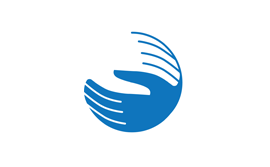
While this article is pretty cool I have a few comments. I am sure Boaz has plenty more, but, I am posting my part at least because I have a moment and he is not here.
First-- Dr. Mercola says, "According to TCM, illness and pain is the byproduct of energy blockages somewhere along one or more meridians. Each acupuncture point along the meridian acts like a pass-through or gate. Energy can get “bottle-necked” in these points, slowing down the flow; sometimes to the point of standstill. This is the precursor to pain and illness."
This is not quite true. Blockages are only one aspect of illness related to what we refer to as stagnation. And, Meridians are only one aspect of the organ systems. So, this is really oversimplifying things. I will ask Boaz to comment further because he can recite all of this backwards and frowards and can impart it in ways that is much easier to udnerstand. But, I wanted to make those two points just now.
The next thing I wanted to say is that while it is really wonderful and amazing that new research is coming out to substantiate the efficasy of acupuncture (and Chinese medicine), there is an aspect of that, that to me is almost upsetting. The reason for this is because the perspectives from which the research is being conducted is so Western, it is minimizing the profound effects of Chinese medicine in my opinion. Chinese medicine is not about muting pain, but rather rebalancing imbalances. And, it is my opinion that what it is doing is far more than the research articles here imply. Part of what is so "miraculous" about chinese medicine is that the paradigm within which it works offers a perseopctive into the human body that allows the practitioner to effect change that corrects for disease states in a way that Western medicine cannot. This is very helpful in situations where Western medicine is at a loss for a diagnosis.
On the flip side of that, Western medicine can say the same. In some cases, Western medicine offers insight that is greatly needed and may not be ascertained from the model of Chinese medicine. so, knowing when and where to employ which medicine is to me, the art of good health care. Further, some may not want to use one medicine or the other. So, having these two very different models is truly needed to suit the needs of the individual as not all care to even have an integrative choice.
In any case, here is the article, and I will ask Boaz to blog further on the subject:


Comments
I am so glad to have found
I am so glad to have found Chinese medicine where western medicjne has failed! I was just trying to explain to my brother when he told me it didn't matter that acupuncture is acupuncture and if it was going to help with my pain and had nothing to do who was implementing the treatment. Without having a totally integrative approach the same pain relief would not necessarily be the result, which I have experienced several different times. It is sad that so many have such a closed mind or skewed view on this topic, but I can't change that. But, anyhow just wanted to say thank you for sharing your opinion on this article!
DR M, your take on this
DR M, your take on this article is very helpful as more understandable TCM explanation. I am immediately sharing with some who are asking and to whom I can't seem to explain clearly. Also, looking forward to Boaz's input..Thank you!